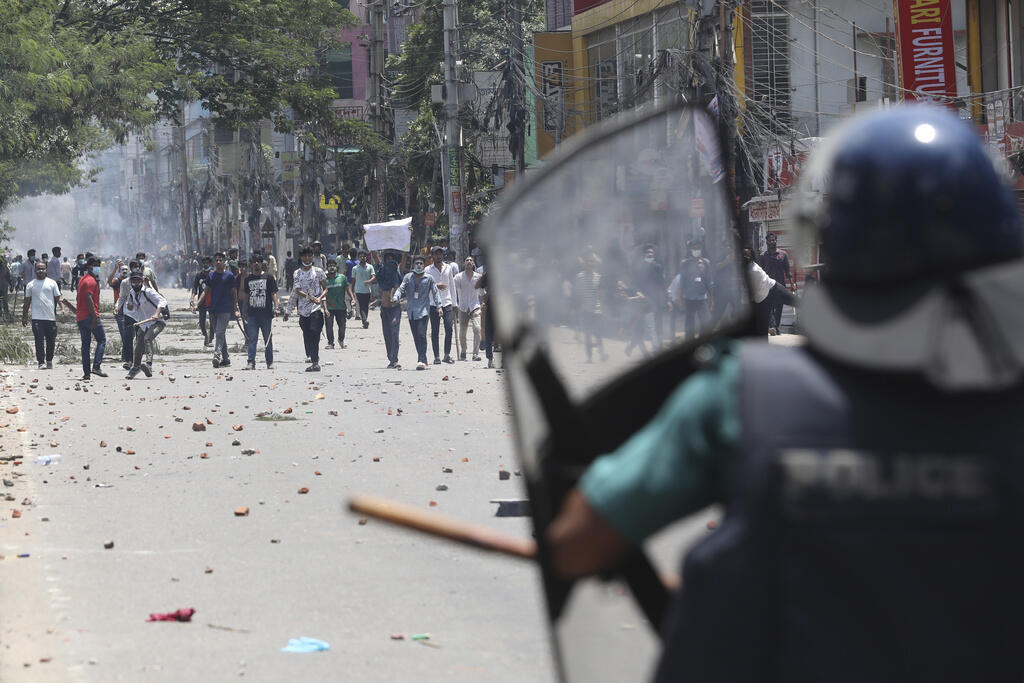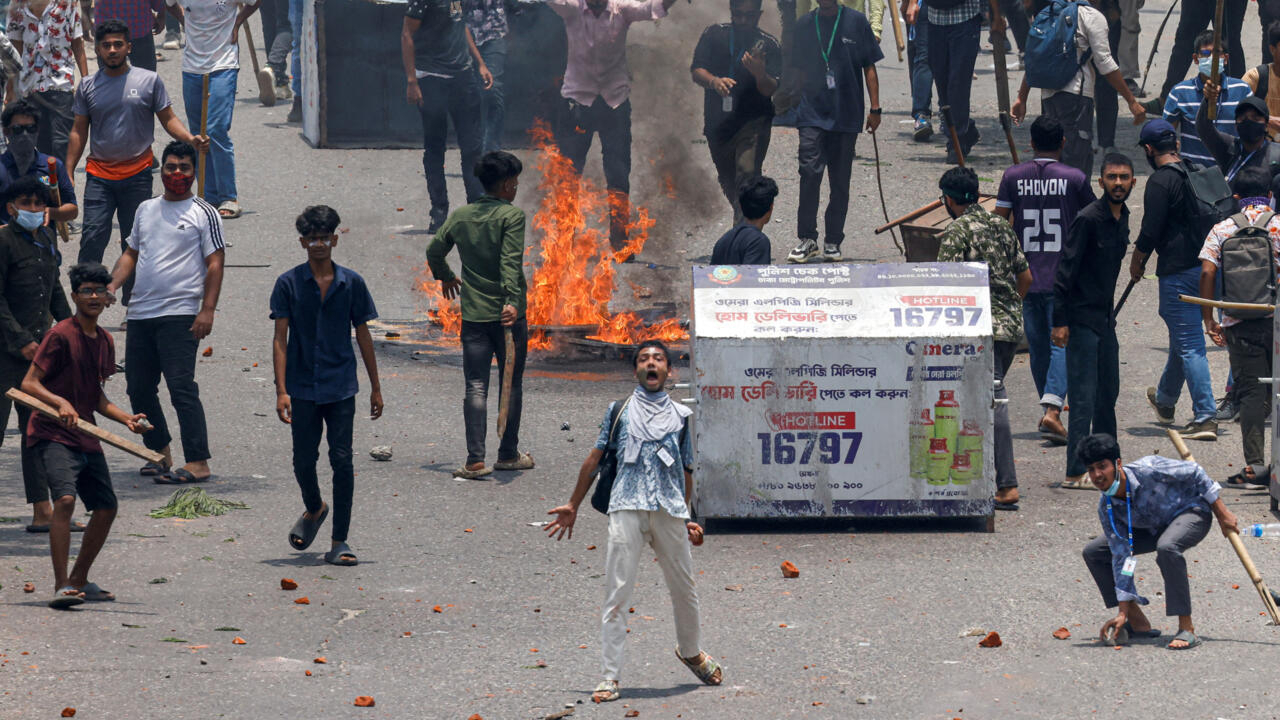In Bangladesh, widespread disruptions to the internet and mobile services have occurred amid escalating student protests that began earlier this week. This digital blackout appears to be independent of a global internet outage occurring simultaneously.
However, the reason behind the disruptions remains unclear, with speculation ranging from government attempts to suppress dissent to potential collateral damage from ongoing violence affecting infrastructure.
The core issue driving the protests is the demand to abolish a quota system that reserves up to 30% of government jobs for the relative’s of 1971 independence war veterans. Protesters argue that this system is discriminatory and call for a merit-based approach to job allocation.
The unrest has been marked by significant violence, with reports indicating 28 fatalities, although some sources suggest the number could be as high as 32. The arts community has shown solidarity by changing their display pictures to black in mourning.

The situation deteriorated significantly on Thursday, with students enforcing a “complete shutdown” of the country. The protests turned violent as demonstrators attacked the headquarters of state-run Bangladesh Television, causing property damage and vehicle fires.
The news producer at BTV described a harrowing escape as attackers breached the station’s security, though the station managed to continue broadcasting despite intermittent signal losses reported by residents.
By Friday morning, the internet and mobile services were largely non-functional in Dhaka, with social media platforms inaccessible. The student protesters, now extending their shutdown call, have also organized nationwide funeral prayers for those who lost their lives.
The intensity of the protests increased further when border guards opened fire on a large crowd outside the Bangladesh Television headquarters, using rifles, sound grenades, and other crowd control measures.
These protests are the most significant unrest since Prime Minister Sheikh Hasina’s re-election in January. Although Hasina’s government had previously suspended the quota system following 2018 protests, a recent High Court decision reinstated it, triggering the current demonstrations.
The Supreme Court has since suspended this ruling, with an appeal hearing scheduled for Sunday. The unrest has revealed deep-seated frustrations about economic inequality, corruption, and limited freedom of expression, reflecting broader societal issues beyond the quota system dispute.







Leave a Reply